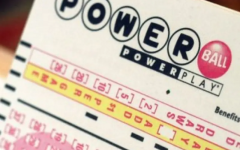
Nevada Man Waits 129 Days for Mental Health Transfer After Allegedly Stalking Gov. Joe Lombardo
By TheNevadaGlobeStaff, October 21, 2024 8:25 pm
Carson City, NV — Stanley Weaver III, a 28-year-old diagnosed with schizophrenia, spent over four months in jail after being declared incompetent to stand trial for allegedly stalking Nevada Governor Joe Lombardo and his family. Despite a judge’s ruling that mandated his transfer to a state mental health facility within seven days, Weaver remained in custody for 85 days before being moved.
Weaver was arrested in March after reportedly breaking a window at a home where he believed Governor Lombardo lived and spreading unfounded claims that the governor had murdered his neighbor. A month after his arrest, Clark County District Court Judge Christy Craig declared Weaver incompetent to stand trial, ordering his transfer to a state facility for mental health treatment. However, that transfer, which should have happened within a week, took nearly three months.
This extended delay highlights a broader issue within Nevada’s mental health system, where limited resources often result in lengthy wait times for defendants needing mental health services. The state’s two facilities that provide competency restoration have only 239 beds, creating significant backlogs. As of early October, the average wait time for such transfers was 78 days, down from Weaver’s 129-day wait due to increased staffing and bed availability.
Weaver’s case underscores the challenges faced by individuals with severe mental health issues in navigating the criminal justice system. His family, expressing concern and sadness over the situation, emphasized that he needed help, not punishment. “He’s a good kid. He shouldn’t be treated like a criminal,” said his mother, Melissa Weaver.
Before his arrest, Weaver’s behavior had alarmed neighbors, leading to multiple police calls and a temporary protection order that was never served. Despite his troubling actions, his parents maintain that these were the symptoms of a deeper struggle with his mental health. They had hoped his arrest would lead to the help he needed, but the delay in his treatment left them feeling let down by the system.
The Nevada Division of Public and Behavioral Health is required by law to transfer defendants like Weaver to a state mental health facility within seven days of a judge’s ruling. However, the demand often outstrips the capacity of the available resources, leaving individuals like Weaver to deteriorate in jail rather than receiving the timely care they are entitled to.
While in custody, Weaver reportedly went on a hunger strike, refused medication, and was placed on suicide watch. His actions and deteriorating mental state were largely driven by his delusional beliefs about the governor. A police report even noted that his family feared he might harm the governor or his family.
Weaver’s transfer to a state facility finally occurred on July 11, after 129 days. But his case sheds light on the broader issues of Nevada’s strained mental health system and the consequences for those caught within it. Public defenders and mental health advocates argue that these delays violate defendants’ constitutional rights and emphasize the need for systemic changes to prevent similar situations from recurring.
This story is the third in a series investigating competency issues in Nevada’s legal and mental health systems. Part 1 examines how delayed treatment led to a tragic jail death. Part 2 looks at another man’s case, where a delayed mental health transfer ultimately led to further arrests.
Source: 8 News Now
Copyright 2024 702 Times, NV Globe. All rights reserved
- Security Without Paychecks: How the DHS Shutdown Is Impacting Las Vegas Travelers - February 16, 2026
- Year of the Horse Lunar New Year Parade Returns to Downtown Summerlin Tuesday Night - February 16, 2026
- No Bond for Tesla Driver: Suspect Held After Hit-and-Run Near the Strip - February 16, 2026




